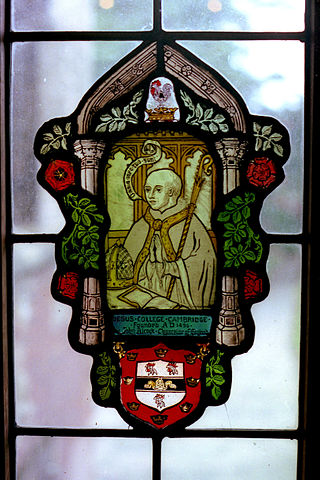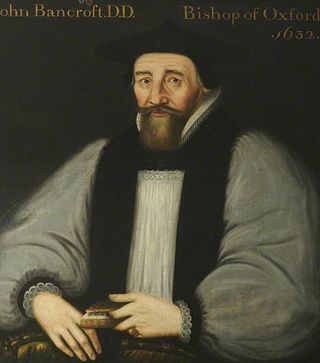Related Research Articles

John Alcock was an English churchman, bishop and Lord Chancellor.
Events from the 1480s in England. This decade marks the beginning of the Tudor period.
Thomas Walker was an Oxford academic and administrator. He was twice Master of University College, Oxford.

John Bancroft was an English clergyman and academic, who served as Bishop of Oxford and Master of University College, Oxford.
James Dugdale was an Oxford academic and administrator. He was Fellow and Master of University College, Oxford.
Nationality words link to articles with information on the nation's poetry or literature.
John Martyn, also known as John Marten, was a Master of University College, Oxford, England.
John Crayford was a Master of both Clare College, Cambridge, and University College, Oxford, England. Martyn was unusual in being a Master of colleges at both the universities of Oxford and Cambridge. He was the only Master of University College to also have been a Master at a Cambridge college.

Tomás Óg de Búrca, 5th Mac William Íochtar was an Irish chieftain and noble who was lord of Lower (North) Connacht, Ireland.

Theobald Bourke, 8th Mac William Iochtar was an Irish chieftain and noble who succeeded his cousin as lord of Lower (North) Connacht, Ireland.

Edmond de Búrca, 12th Mac William Íochtar was an Irish chieftain and noble who was lord of Lower (North) Connacht, Ireland.

Ricard mac Seaán an Tearmainn Bourke, 16th Mac William Íochtar was an Irish chieftain and noble.
John Roxborough was a Master of University College, Oxford, England.
Ralph Hamsterley was a Master of University College, Oxford, England.
Richard Salveyn was a Master of University College, Oxford, England.
George Ellison was a Master of University College, Oxford, England.
Anthony Salveyn was a Master of University College, Oxford, England.
Richard Witton was a Master of University College, Oxford, England.
John Castell was a Master of University College, Oxford, and later a Chancellor of the University of Oxford. Castell was a Fellow of University College. He became Master of the College circa 1408. He also held preferment in the Diocese of York with his mastership. In 1411, a sentence of excommunication was issued by the Archbishop of Canterbury, Thomas Arundel, against Castell, Fellows at the College — Robert Burton, John Hamerton, and Adam Redyford — and the College as a whole, due to Lollardy leanings. An appeal to the Pope against the excommunication was made by the bursar of the College, John Ryvell. Castell survived the controversy and continued as Master until 1420.
References
- ↑ Carr, William, University College , Routledge, 1998. ISBN 978-0-415-18632-2. Chapter IV, The Fifteenth Century (pages 53–73).
- 1 2 Darwall-Smith, Robin, A History of University College, Oxford. Oxford University Press, 2008. ISBN 978-0-19-928429-0. After Martyn: 1473–1509, Pages 63–66.